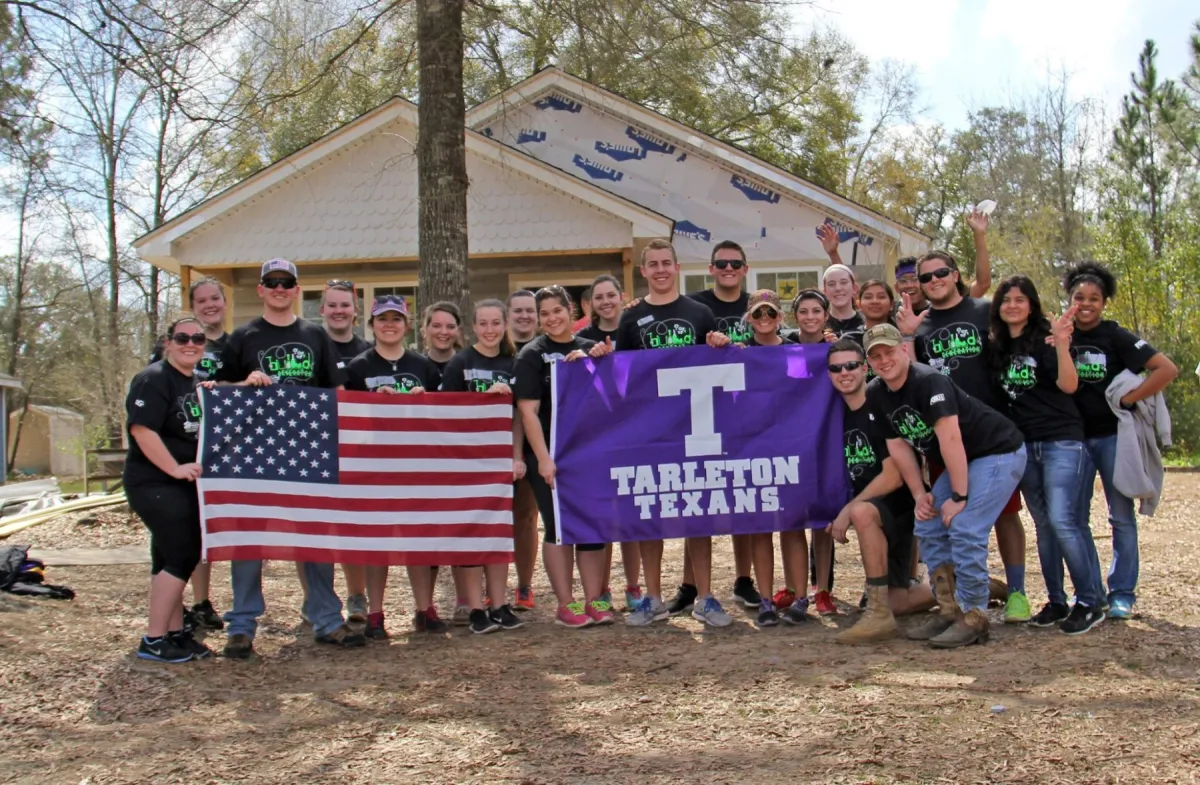For many graduated high school seniors, college is the next chapter in their life, as well as their first step into adulthood. During and after this transition, students are introduced to a life of greater independence, self-reliance, and many other things. Guardians are no longer down the hall to answer a quick question about homework and college professors are going to begin showing us real academic discipline. With this step into adulthood comes new expectations and challenges that students may not be anticipating. This raises the question: do students feel prepared for college after high school graduation, especially taking into consideration what they are taught in high school?
“I did not think that I would learn anything valuable in high school,” Peyton Mizeski, a current Tarleton State University freshman said “I always looked at it as more of a time to hang out with friends than actually learn.”
Regan Ritthaler, a current senior at Millsap High School, also felt the same way at first.
“I wasn’t really sure that I was going to get anything useful out of high school. I was under the impression that it was going to be a waste of time,” Ritthaler spoke. “However, I found that it is what I make up of it. I have to decide if I want to learn something useful.”
AJ Nielsen, a freshman at Tarleton State, had a different first impression from Mizeski and Ritthaler.
“I definitely expected to learn some values from high school,” Nielsen answered when asked if she believed that high school would provide helpful and valuable information. “I learned how to organize my work and have good time management, as well as how to make friends, resolve conflicts, take notes, study, etc. High school taught me a lot about friendships and about how the people you surround yourself with start to rub off on you, so choosing good people to spend time with is vital. Especially coming into college when you are on your own to make decisions.”
Sariah Ellestad, a senior at Brock High School, also had positive things to say regarding valuable skills taught in high school, stating that high school “provides a foundation in various subjects like critical thinking skills, time management, teamwork, and problem-solving abilities, which can be valuable in many aspects of life.”
Although many valuable bits of information are taught in high school, it does not mean that students feel prepared for life after high school graduation. This can be seen in the fact that, even though Ellestead admitted to learning important life skills in high school, she still answered, “I feel like I am not prepared at all. I don’t know how to budget my money and how to save it. I don’t know what to expect in college. I don’t feel like anyone got me prepared to be an adult after graduation,” when asked if she felt high school had helped prepare her for college.
Seemingly, no one else interviewed felt as under prepared as Ellestad, but two claimed to be on the fence about how ready they actually were.
“Yes and no,” Hoanli Sun answered. “Yes, high school prepared me for what school life would be like coming to classes and the proper preparations in order to deal with the classes. No, in the sense of what I would actually be facing in the world. I feel like they just touch briefly on what to expect in adulthood and moving on, but they don’t necessarily prepare me for it.”
AJ Nielsen also felt similarly to Sun, stating, “I felt semi-prepared. Most of my teachers warned me that college is a lot more independent than high school, especially academic-wise, but it’s still much more different than I expected. College life is such a quick change from being at home and you are thrown into the deep end of ‘adult things.’”
A student’s expectation of college also plays into how prepared one may feel for their higher education. It is not uncommon to hear high school teachers reprimand students with “that won’t pass in college” or “in the real world you can’t do that.” When asked about their expectations for college, based on what they had been told in high school, each interviewee had something different to say.
“I was expecting college to be a more serious version of high school,” Mizeski remarked. “My teachers always said the professors in college would not care about you and would not help at all. Once I got here, it is like I thought it would be, but the teachers are much more helpful than I was expecting.”
Nielsen however, said, “To be honest, I wasn’t sure what to expect coming to college. A lot of teachers and older people have different opinions on how to navigate this part of your life. I expected it to be much more independent, which it is. It’s all on you to be responsible for yourself.”
Sun, in regards to the same question, answered, “I had heard a bunch of things like every single night there are parties and everyone likes to go out and have fun and people don’t show up to class or care about college. I realized that it’s only partially true, there’s going to be parties now and then, but people are here to get an education and prepare themselves for careers and set up their path for their life that is ahead of them.”
As for the high school seniors, Ritthaler is “expecting a bunch of stuffy, no nonsense teachers that are burnt out and won’t put up with anything.”
“I am expecting higher independence, challenging courses, diverse community, higher workload, and having larger classes with more students,” Ellestad stated.
Finally, each interviewee gave their opinion on what life skills they wish that they were taught in high school to help better prepare students for life after high school graduation.
“More mechanical stuff. Fixing easy things, changing oil, and changing tires, just in case of an emergency. Communication skills as well. I feel like we were not properly prepared, just a little hint of what it’s like with people around with job interviews and trying to meet people around. I feel like they just prepared us for the bare minimum of what we should do,” Sun stated.
Both Ellestad and Mizeski had similar statements.
“How to do taxes. I almost did tax evasion and it scared me more than anything else ever has,” Mizeski said. Ellestad answered, “Understanding personal finance, budgeting, saving, investing, and managing debt are crucial for the real world and making smart decisions.”
Nielsen remarked that high schools definitely need to cover real-world issues in general, specifically commenting “A lot of kids rely on their parents to teach them these things (paying bills, finding a doctor, buying a house), but many kids don’t have that option, so it can be really hard to get thrown into real life with no knowledge of how to do the things you need to do to survive.”
Students making this transition can feel ready for college, in the sense that they learned life skills such as time-management, how to handle course work, and how to socialize. On the flip side, though, students feel that they are lacking in other life skills such as financial literacy.
With this in mind, the answer to the question is both yes and no. Each individual is going to be prepared for college in some ways, while feeling completely unknowledgeable about other things. The most important thing to understand is that it is okay, because no one is going to ever feel 100% prepared for all of the changes that come with one of the biggest steps in their life.




